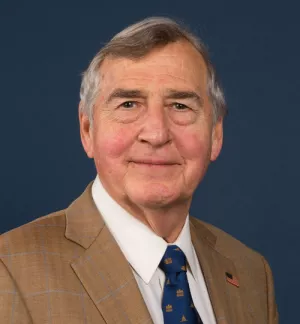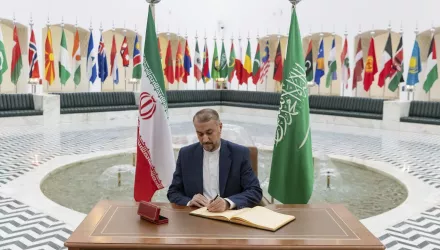Best-case scenario is that it's way too early to tell
This week's anniversary of the U.S.-led war against Iraq is an appropriate occasion to ask: Are Americans safer than we were a year ago?
Iraq is at best a work in progress, the outcome uncertain. But analyzing the full spectrum of dangers emanating from Iraq and elsewhere, it is difficult to escape the conclusion that Americans face greater threats to their security in the year ahead than we did on March 19, 2003.
The clincher in the Bush administration's case for war against Iraq this time last year turned on the possibility that Saddam Hussein might attack Americans with weapons of mass destruction, particularly nuclear weapons, or transfer them to terrorists like Al Qaeda. As Vice President Dick Cheney claimed three days before war began, "We believe Saddam Hussein has, in fact, reconstituted nuclear weapons." President Bush warned, "The risk is simply too great that he will use them, or provide them to a terror network."
After 11 months in which U.S. forces have had full run of Iraq, no weapons of mass destruction have been found. Thus, either Hussein had no weapons of mass destruction, or as Cheney and Secretary of Defense Donald Rumsfeld suspect, he transferred them to others outside Iraq before or during the war.
If Hussein had no weapons of mass destruction, the U.S. faced no WMD threat from Hussein then or now. Alternatively, if Cheney's and Rumsfeld's hunch is right and Hussein's weapons are now in the hands of others, even Al Qaeda, the risk of their being used in an attack on the U.S. is greater today than it was a year ago.
Recall the consensus judgment of America's best intelligence analysts about whether Hussein might use weapons of mass destruction against the U.S. The October 2002 National Intelligence Estimate on Iraq stated that in the absence of a U.S. attack, the likelihood of Hussein attacking us with chemical and biological weapons in the foreseeable future was "low." On the other hand, if Hussein became convinced that we really were about to topple his regime, intelligence analysts concluded the likelihood that he would attack us with chemical or biological weapons was "high." In sum: To prevent an attack the likelihood of which was low, the U.S. took an action that made the likelihood of that attack high.
In the past year, other WMD threats reached their boiling points. While the Bush administration's attention was consumed by Iraq, North Korea reprocessed some 8,000 nuclear fuel rods for plutonium— enough for six nuclear weapons. Iran was caught with an advanced uranium enrichment program, for which it purchased much of the necessary equipment and plans on the nuclear black market. Osama bin Laden and his deputy Ayman al-Zawahiri enjoyed a breather in which to regroup, adjust tactics and plan new attacks.
While fortunately nothing on the scale of Sept. 11, 2001, has been carried out, bombings in Iraq, Turkey, and most recently Spain prove that they have kept their eye on this fight.
Unquestionably, some progress has been made. The new Department of Homeland Security has taken important steps to secure America's borders, integrate previously unrelated agencies, and improve the immigration system that allowed suspected terrorists to enter the country before 9/11. Yet the largest reorganization of government since the creation of the Defense Department after World War II will require time to perform as advertised.
And even in the best-case scenario, homeland security should be the last line of defense. By the time terrorists are transporting weapons of mass destruction in a cargo container to American targets, it will almost certainly be too late to stop them.
It is possible that the invasion of Iraq will make Americans safer at some point in the future. The new Iraqi constitution, with its mix of Western individual rights and Islamic values, creates hope that a democratic Iraq could in fact become a modern beacon in the Middle East, depriving Islamic fundamentalists of a valuable recruiting tool. But that is a long-term benefit, one that might be besides the point given nearer-term developments in North Korea, Iran and elsewhere.
Democracy in Baghdad will do little to protect Americans if rogue states and terrorists are not prevented from acquiring weapons of mass destruction. The war in Iraq was sold to the American public as the means to do just that. In the run-up to the war in Iraq, the Bush administration seemed eager to confront the WMD threat head on, launching a dramatic and expensive war in the face of widespread international condemnation. But the administration's willingness to pull the trigger does Americans no good if it does not know where to aim.
Graham Allison is director of the BelferCenterfor Science and International Affairs at HarvardUniversity's KennedySchoolof Government.
Allison, Graham. “Is the U.S. Safer Than it Was a Year Ago?.” Chicago Tribune, March 19, 2004




